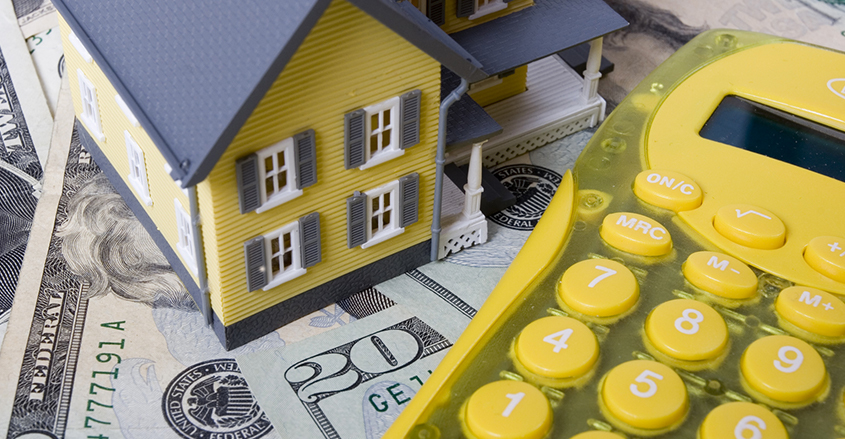The only thing harder than buying a home might be keeping it. That’s why the argument to rent vs buy a home is so complicated.
Owning a home is the American dream, but it can be more of an incredible responsibility. Most new homeowners do not consider the enormous monetary, maintenance, and time costs that comes with home ownership.
Instead, they focus on the price of the house. The median home price in 2018 was about $180,000 and the average price for a new home was about $400,000.
Meanwhile, the median annual income for most new homeowners was $72,000.
More than 74% of new homeowners rented before owning a home. Well over 21% of new homeowners lived with their parents before owning a home.
Only about 4% of homeowners have ever owned a home before purchasing a new home.
If you’re struggling to raise the average 6% down payment, or don’t intimately understand the avalanche of incidental costs that come with insuring, repairing, and aesthetically maintaining a home, then you may be better off renting one for a while.
Renting a home is not a failure. Nor is it a betrayal of the American dream.
Rather, renting a home may just be the most financially responsible thing to do relative to your personal circumstances. No one is suggesting that you rent a home longer than a few months or for a year or two.
Renting can help you become acquainted with the responsibilities of ownership. Or have more time to settle into life before owning a whole house.
Renting vs buying a home
For one, there are far fewer up-front costs involved when it comes to renting a home.
Renting a home typical involves paying first and last month’s rent plus a security deposit or credit check. It’s a lot of money but not nearly the same as buying.
The average monthly mortgage payment is between $1,000 and $1,200. Of course, that amount can be easily doubled, or more, considering location, maintenance costs and the size of the home.
A down payment to buy a home is about 6%, and many home buyers aim for more.
But when you own a home, then all of the maintenance and repair costs are assumed by you, the homeowner. These are all of the costs of home ownership that are recurring on a monthly, seasonal, and annual basis.
Let’s assume that as a homeowner that your monthly mortgage payment is about $1,200. Think that is all that you have to pay? Well, think more than twice.
The average monthly costs besides the mortgage can double that.
The real costs of owning a home
If you are part of a homeowner’s association, then there are monthly fees that must be paid for that privilege. In some areas of the country that can be as much as $250 a month.
The average bill for utilities amount to $200 a month but can be more. Your monthly property taxes can be easily $220 a month.
Home insurance and mortgage insurance can top $250 a month. You are responsible for acquiring adequate insurance coverage for your home, even though the coverage protects the bank’s investment as well.
Depending on where you live, you may need to buy flood insurance, fire insurance, wind damage insurance, or earthquake insurance.
General annualized repair costs run about 1% of the home’s value. Lawn maintenance and snow removal costs can be another $50 to $100 a month.
It could be more or less depending on your circumstances. Yet homeowners pay at least 30% and up to 90% more in costs and fees relative to renters.
The cost difference between owning and renting a home thus can be anywhere from $100 to more than $1,000 extra each month.
Foreclosure risk
Only about 1% of homeowners have ever rented a home before buying. More people should try it to avoid the financial and emotional trauma of losing their home.
One out of every 200 homes enters foreclosure, according to the Mortgage Bankers Association, and more than 250,000 homes are foreclosed on every three months.
Renting a home instead can be seen as financial practice in dealing with the financial pitfalls that come with home ownership. We all miss payments now and then.
But missing a few mortgage payments could mean losing your home and the equity you have built up, not just eviction.
Personal stability
You may want to consider renting a home for a year or two if you have an unstable personal life or move a lot.
More than 30% of people change their jobs once a year. The average American has about $40,000 in personal debts, not including mortgages.
Considering the costs involved in owning a home, renting may be a better option until you are financially stable.
Our personal lives change all of the time, too. More than 60% of people who buy a home are married and do not have any kids.
In that case, it may be better to rent for a while while determining how big your family will become. Where is the financial sense in moving every year or two because you are adding to your family?
It takes a lot of money and planning to buy a home. Only make such a decision if you know you will live there for decades.
Practicality
Owning a home should be a personal investment for a lifetime. Not just for a few months or a few years until financial reality can no longer be ignored.
Until you can be financially steady, renting may just become the norm. Achieving the American dream is a great ideal. But adulthood usually involves embracing the practical in life.
For instance, buying a home is cheaper than renting in less than 35% of all U.S. counties. The grim reality of today’s housing market that shouldn’t be ignored is renting is cheaper than owning a home and can be much cheaper.

